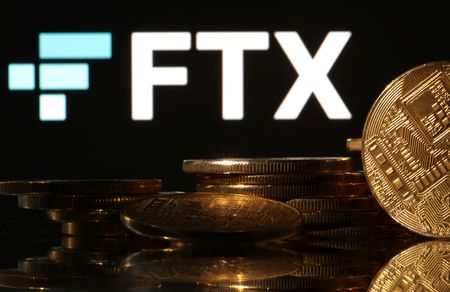By Divya Rajagopal
TORONTO (Reuters) -The Ontario Teachers Pension Plan (OTPP) said on Thursday it had invested a total of $95 million to the troubled cryptocurrency exchange FTX and any financial loss from the exposure will have limited impact on the pension plan.
OTPP, Canada’s No. 3 pension fund, said it made the investments in FTX International and FTX U.S. exchange through its Teachers’ Venture Growth fund, representing less than 0.05% of the pension fund’s total net assets, it said.
FTX is scrambling to raise funds from investors and rivals as Chief Executive Sam Bankman-Fried urgently seeks to save the cryptocurrency exchange that has been buffeted by a rush of customer withdrawals.
OTPP is the second Canadian pension fund that has found itself caught up in the crypto turmoil.
In August, Canada’s No. 2 pension fund Caisse de dépôt et placement du Québec wrote down about $150 million of its investments in crypto lending firm Celsius after it filed for bankruptcy protection earlier this year.
In an interview with Reuters in September, OTPP had described its investment in FTX as the one having “lowest” risk profile in this space.
Teacher’s Venture Growth invests in early stage start-ups.
“Naturally, not all of the investments in this early-stage asset class perform to expectations,” the fund said.
The Ontario government, which is a joint sponsor of the pension fund, said that the Financial Services Regulatory Authority of Ontario, as the regulator of OTPP, engages with plans to ensure appropriate risk management processes are in place. FSRAO did not provide an immediate comment.
Most other Canadian pensions fund, who are prolific global investors, have stayed away from crypto investments. Canada’s fifth-largest fund PSP said it wanted to be cautious despite being interested in the crypto space,
“You have to be careful as a pension fund and as a long term investor when you step into innovation and a new technology,” said Herman Bril, head of Responsible Investment at Montreal-based Public Sector Pension Investment Board.
(Reporting by Divya Rajagopal and Maiya Keidan in Toronto, editing by Deepa Babington)

